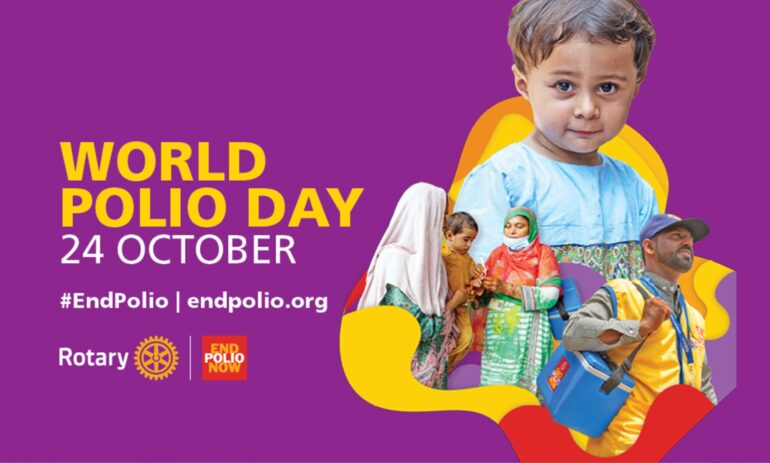Today, 24th October is World Polio Day, established by Rotary International which was created with the aim of continuing a renewed focus on the requisite measures to permanently eliminate polio from the face of the Earth.
The 24th October was picked as the annual date to commemorate the birth of Jonas Salk, who led the first team to develop a vaccine against poliomyelitis. Use of this inactivated poliovirus vaccine and subsequent widespread use of the oral poliovirus vaccine developed by Albert Sabin led to establishment of the Global Polio Eradication Initiative (GPEI) in 1988. Since then, GPEI has reduced polio worldwide by 99 percent.
The Ministry of Public Health reports that Paraguay has been considered polio-free since 1985 and that the Americas have had 30 years without cases of wild polio. In this context, it reiterates its call to parents and caregivers to keep their children’s vaccination schedules up to date, ensuring the protection of children and the community in general. Vaccines are available free of charge in all health centers in the country.
Every October 24th, “World Polio Day” is commemorated, with the campaign slogan “Let’s #EndPolio”, reaffirming the commitment to continue fighting this disease.
For more information on vaccination centers, visit www.vacunate.gov.py or call 138, the toll-free number for consultation.
This date underscores the importance of vaccination in eradicating this highly contagious disease. This year marks 30 years without wild polio in the Americas, a significant achievement that demonstrates the positive impact of immunisation campaigns over the past three decades.
The last case of polio in Paraguay was recorded in 1985, and since then, the country has maintained its commitment to immunisation, allowing it to be considered polio-free.
The Ministry of Public Health and Social Welfare recalls that the Region of the Americas was certified as free of wild polio in 1994. To maintain this achievement, it is essential to continue strengthening vaccination campaigns and epidemiological surveillance.
Poliomyelitis, caused by the polio virus, primarily affects children under the age of five, causing paralysis within hours. Although there is no cure for the disease, it can be prevented through vaccination.
Since the introduction of the hexavalent vaccine, which includes the inactivated polio vaccine (IPV), the vaccination schedule has become entirely IPV, thus ensuring greater protection for the child population, the health ministry said.


